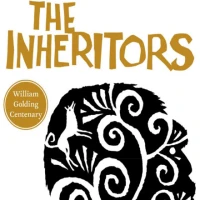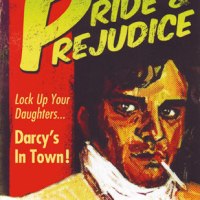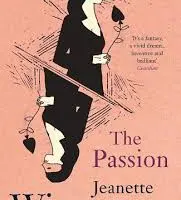Childe Harold’s Pilgrimage, Canto IV, by Lord Byron
Canto IV of Byron’s Childe Harold’s Pilgrimage was published some six years after Cantos I and II. During those six years Byron’s style developed, with the result that Canto IV is simply better written than I and II were (III was to be fair also pretty good).
So of the four Cantos this is the most technically accomplished. Unfortunately, it also contains the most references I didn’t get and I read it while feeling a little under the weather. That combination means that this is the best of the cantos, but that I enjoyed it least. So it goes.
In Canto IV Byron drops the Childe Harold persona entirely. He complains in a foreword that all his readers insisted on seeing Harold as just being a representation of Byron himself. That being the case, there wasn’t much point to continuing the character. Byron was right. I’m one of his readers and I saw Harold as Byron. Frankly, I didn’t miss him. Nothing that makes this poem worth reading (and it is worth reading) has anything to do with that unfortunate wight Harold.
Canto IV continues Byron’s mix of political comment, travelogue and ode to the joys of nature. Here he introduces (or reinforces) a theme of feminine grace, but for me the older themes of the passage of time and the folly of ambition stood out more proudly. Byron’s travels now take him to Italy, and there amid its many ruins he contemplates art, nature, love and mortality. It’s heady stuff.
Of all his destinations Italy proves the most inspiring for Byron, as it has for so many of us who’ve been there. From my own experience I know how gazing upon the Roman forum or the Colliseum brings home how fleeting even the greatest of achievements can be. Here’s Byron describing the Rome of his day:
CVII
Cypress and ivy, weed and wallflower grown
Matted and mass’d together, hillocks heap’d
On what were chambers, arch crush’d, column strow’n
In fragments, choked up vaults, and frescoes steep’d
In subterranean damps, where the owl peep’d,
Deeming it midnight: – Temples, baths or halls?
Pronounce who can; for all that Learning reap’d
From her research hath been, that these are walls-
Behold the Imperial Mount! ’tis thus the mighty falls1.CVIII
There is the moral of all human tales;
Tis but the same rehearsal of the past.
First Freedom and then Glory – when that fails,
Wealth, vice, corruption, – barbarism at last.
And History, with all her volumes vast,
Hath but one page, – ’tis better written here,
Where gorgeous Tyranny hath thus amass’d
All treasures, all delights, that eye or ear,
Heart, soul could seek, tongue ask – Away with words! draw near,CIX
Admire, exult – despise – laugh, weep, – for here
There is such matter for all feeling: – Man!
Thou pendulum betwixt a smile and tear,
Ages and realms are crowded in this span,
This mountain, whose obliterated plan
The pyramid of empires pinnacled,
Of Glory’s gewgaws shining in the van
Till the sun’s rays with added flame were fill’d!
Where are its golden roofs! where those who dared to build?
The theme of liberty is continued, as is that of the folly of ambitious tyranny. Byron reflects on the fate of kings and emperors most of whom end poorly and notes that Napoleon for all his grand goals is now imprisoned. Conquest is pointless because fleeting. When freedom is sacrificed to empire that which is bought has no longevity worth the price paid. The irony is that freedom too is inevitably temporary. As Keynes said, in the long run, we’re all dead.
One of the curious things about the pilgrimage is that although Byron reflects long on mortality and on the passing of things it’s not overall a sad poem. It has much sadness in it. Byron talks often of the transience of human works and in one particularly bleak section he argues that love is as much a passing shadow as ambition or glory. For all that though he finds comfort and joy in the natural world and in the simple act of being alive.
I thought the following passages both distinctly representative of the Romantic sentiment:
CLXXVI
Upon the blue Sympleglades: long years –
Long, though not very many, since have done
Their work on both; some suffering and some tears
Have left us nearly where we had begun:
Yet not in vain our mortal race hath run,
We have had our reward – and it is here;
That we can yet feel gladden’d by the sun,
And reap from earth, sea, joy almost as dear
As if there were no man to trouble what is clear.
CLXXVIII
There is a pleasure in the pathless woods,
There is a rapture on the lonely shore,
There is society, where none intrudes,
By the deep Sea, and music in its roar:
I love not Man the less, but Nature more.
From these our interviews, in which I steal
From all I may be, or have been before,
To mingle with the Universe, and feel
What I can ne’er express, yet can not all conceal.
As the Canto draws to a close there is a lengthy and for me moving homage to the splendours of the sea. It’s vastness, mystery and beauty. The Canto ends well, and given its length and frankly for me often challenging nature (I’ll return to that shortly) I found the ending such as to give the whole work a greater satisfaction. There is a sense across the cantos of a work and a voice growing into its potential. The travelogue remains, the arguments about issues of the day, but the focus shifts increasingly towards an awareness of ephemerality and the importance therefore of beauty.
Byron assumed a certain sort of readership for his work, and I am not of that readership. I’m fairly solid as a rule on my classical references but even so there were many here I failed to understand. Particularly in the earlier sections of this canto there were times I could tell something was being alluded to but not what. That I think is a consequence of my education being so different to those he expected to read it when it was published.
Equally, I was challenged at times by the circumstances of my reading. At one point I sought to read it on the train from Folkestone to London. Across the aisle a family sat down, possibly from Porlock, and proceeded to discuss at length the various merits of attractions at the London Dungeon. It’s not clear to me why they couldn’t see both the Bloody Mary exhibit and the Jack the Ripper one, but I do now understand that both have much to recommend them.
I hope they enjoyed it. They seemed nice people and very excited. It’s by no means their fault that Byron struggles to make his voice heard over that of the London Dungeon.
In the end, it’s hard not to be won over by this poem. Byron is a man who thinks nothing of a near-page long digression on the differing backgrounds of gladiators and of how a particular Christian martyr ended the games. Among the romantic philosophy, the politics and the sheer pleasure in his travels there’s sometimes a chattiness which makes Byron just fun to be with. Even through a gulf of time, education and indeed class his charm shines through and it’s easy to see at least some of his allure.
Having now read it I can definitely see why this poem had the impact it did. Despite its challenges it’s often easy to read (and would have been easier in its day); it’s entertaining; it conjures up with great effectiveness distant and romantic lands and takes the reader to them (much as a modern holiday tv show might); for the physical rather than armchair traveller parts could actually be used as a guide book; and on top of all that it has philosophy and reflections on glory, ambition, time and mortality.
Central to it all though is Byron himself. A romantic outsider striding through semi-ruined landscapes, contemplating beauty and brooding on past glories. It’s a figure, an image, which remains powerful today. Even Edward Cullen, the vampire from the Twilight books, is his descendant. For Byron the greatest thing his poem had to show was nature itself. For the reader it is Byron that is the true hero.
Childe Harold’s Pilgrimage. I’ve linked to this before, but here‘s a nice article on the whole poem by someone better educated than I to speak to it. It includes a nice excerpt from Canto IV and there are some other excellent excerpts in the comments.
1. The Palatine is one mass of ruins, particularly on the side towards the Circus Maximus. The very soil is formed of crumbled brickwork. Nothing has been told, nothing can be told, to satisfy the belief of any but a Roman antiquary.












